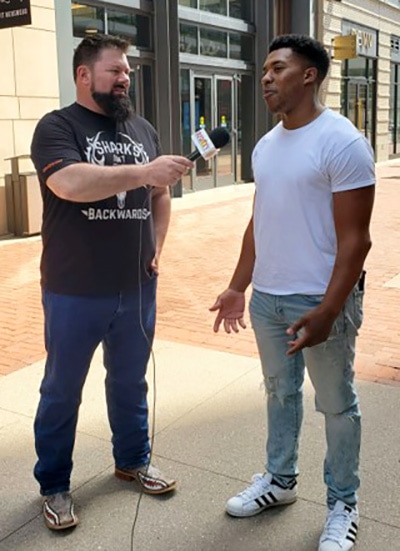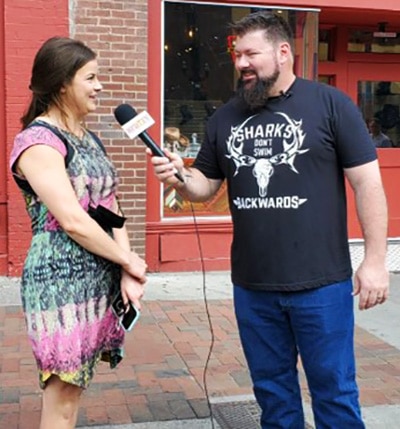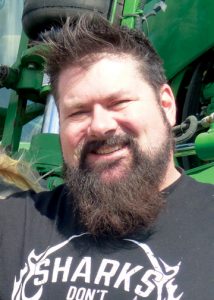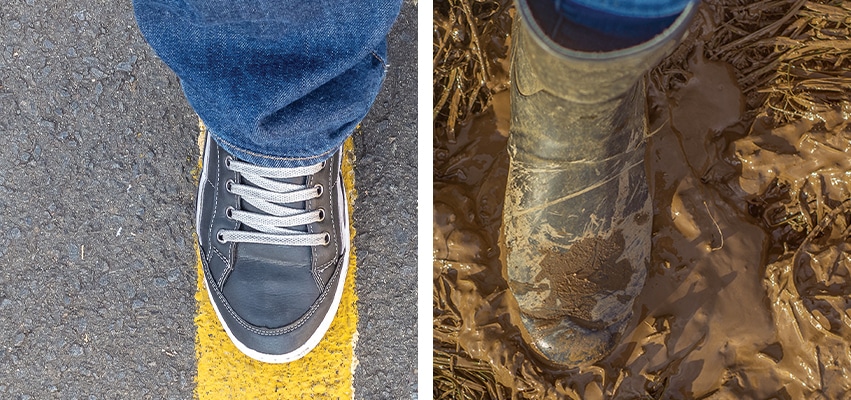I do a segment on SharkFarmer TV where I go out on the streets of downtown Nashville and ask people how much they know about where their food comes from.
I know, it is not an original idea. David Letterman and Jay Leno did the same for years. Whereas they are looking to make fun of people, I am not.
 I know that if I go out and humiliate people about their lack of knowledge in agriculture, I will have a guaranteed audience. Folks love seeing what people don’t know, because it’s an easy way to feel better about themselves. I didn’t want that type of show. There is enough mean stuff out there.
I know that if I go out and humiliate people about their lack of knowledge in agriculture, I will have a guaranteed audience. Folks love seeing what people don’t know, because it’s an easy way to feel better about themselves. I didn’t want that type of show. There is enough mean stuff out there.
The audience for this particular show is heavily agricultural. Basically, I am reaching farmers and ranchers as well as ag professionals and rural lifestyle-type people. If only about 1% of the population of the U.S. actually farms, then my chances of stumping people on the streets of a busy city are fairly high.
What I wanted from this segment was for it to open the lines of communication between farmers and non-farmers so it can be more of a two-way street. I wanted to point out how urban people could learn a bit more about rural folks, and that rural can learn more about urban. Plus, it had to be entertaining.
No problem …
The first lesson I learned is how many people don’t want to be filmed. I sometimes forget about the fear that overcomes some people as they stare into the lens of a camera. The second lesson was that people were well aware of how the “man on the street” interviews were basically trying to make fun of them. However, with some pleading and salesmanship, we did get some takers.
I always ask what the people being interviewed do for a living, in an attempt to show my heavily agricultural audience that we don’t know much about what they do. Then I would proceed to ask them some questions and show them pictures of farm equipment to see if they knew what it was.
Here’s the tricky part. In order for the segment to grab attention, it has to be entertaining. That’s where I had to poke fun at the situation, not the person. Honestly, this isn’t hard. If you simply recognize that you are interviewing an intelligent person who simply doesn’t know the subject matter, the bit kind of writes itself.
 What people say is pretty damn funny. We had a lady call a hay rake a “plant tickler.” A young lady who saw a picture of a sprayer said it looked “like a tractor with a crane. It must be a cracktor.”
What people say is pretty damn funny. We had a lady call a hay rake a “plant tickler.” A young lady who saw a picture of a sprayer said it looked “like a tractor with a crane. It must be a cracktor.”
Many people think that grain bins are for holding water or milk. One guy thought a silage chopper was built for the upcoming zombie apocalypse. There are endless wrong answers to questions that farmers see as “common sense.”
I do like that we are showing people in ag how far removed our urban friends are from how food is made. My biggest goal for farmers is to show them this isn’t a one-sided conversation. Even if it’s just virtually, farmers and ranchers need to venture past their fencerows. As much as we in ag can teach others, we must also be open to learning.
From fine arts to complicated science, there is always something we can learn, and in turn understand each other better.
This world of ours is very happy to divide people into groups and to adopt an all-or-nothing attitude when it comes to where people’s loyalties lie. One big division that is pushed on society is rural and urban.
I can 100% tell you, talking to non-agriculture people on the streets of a city has only shown me how much alike we are.
I know if I flip my light switch, that a light bulb will come on. I know that the electricity comes from a power plant. I also know that if I would be shown pictures of power turbine parts, I wouldn’t know what they were. I remember this when I ask people what a combine is.





